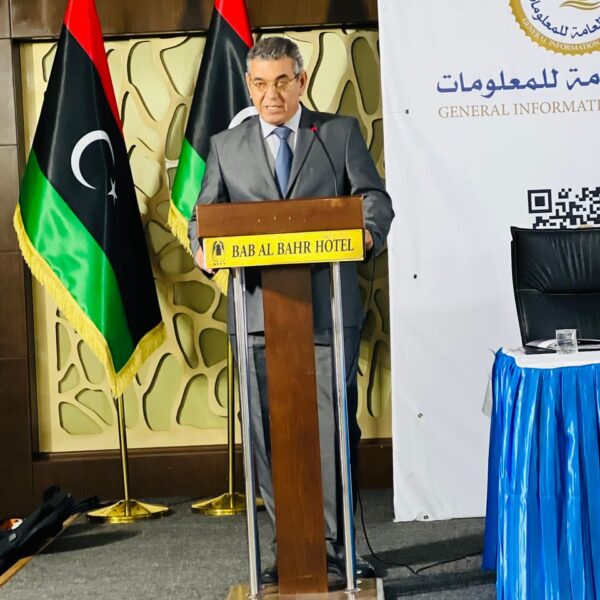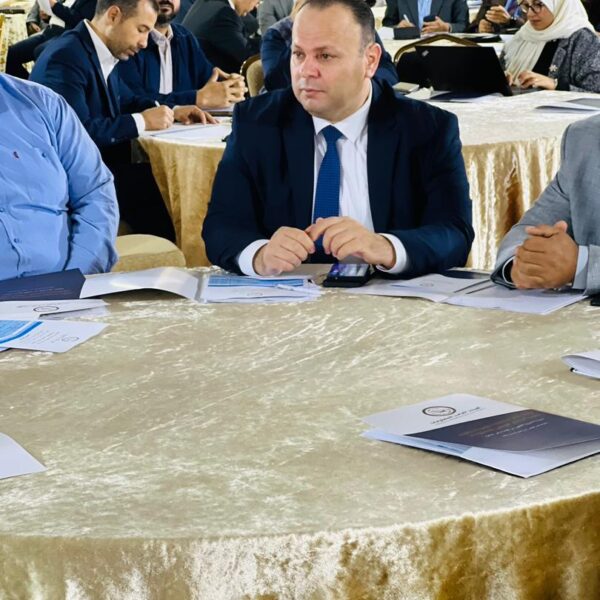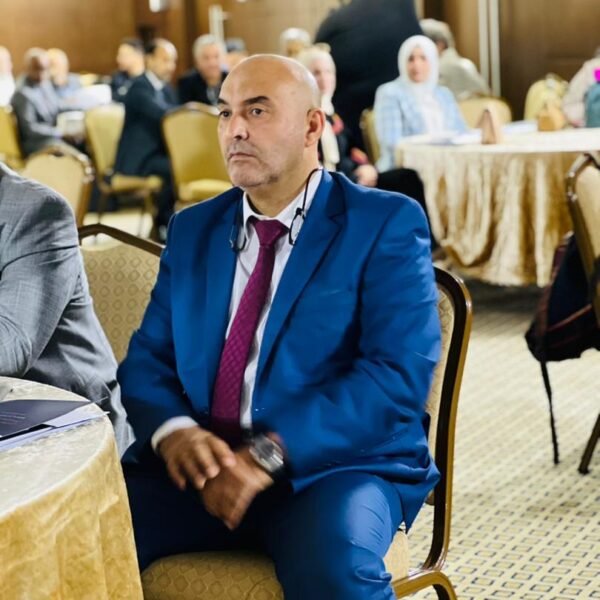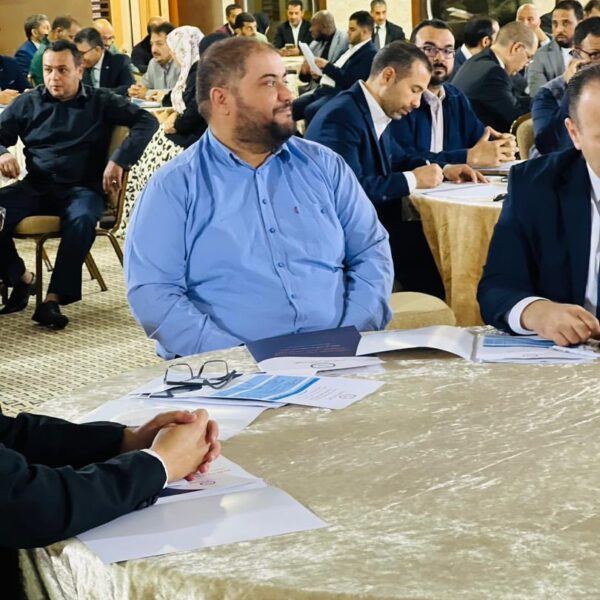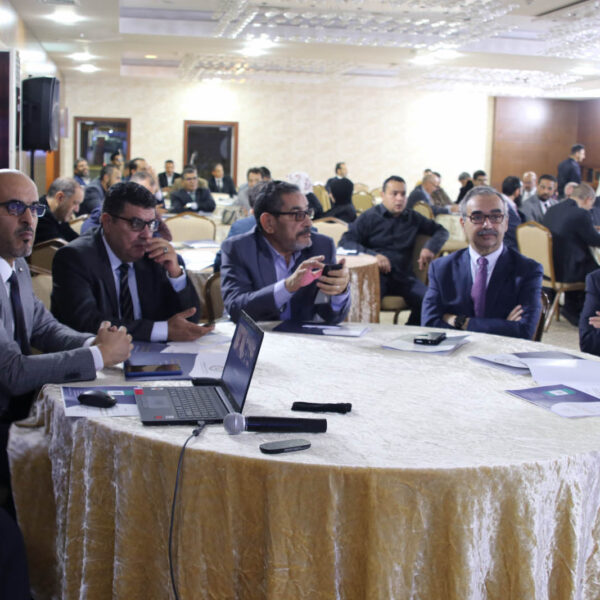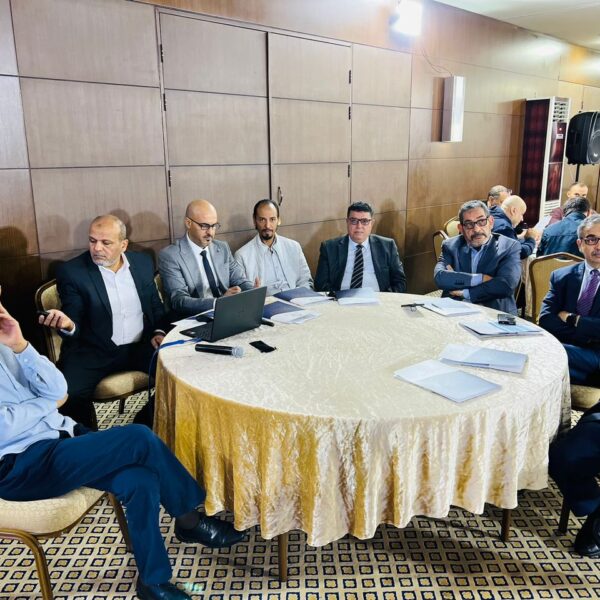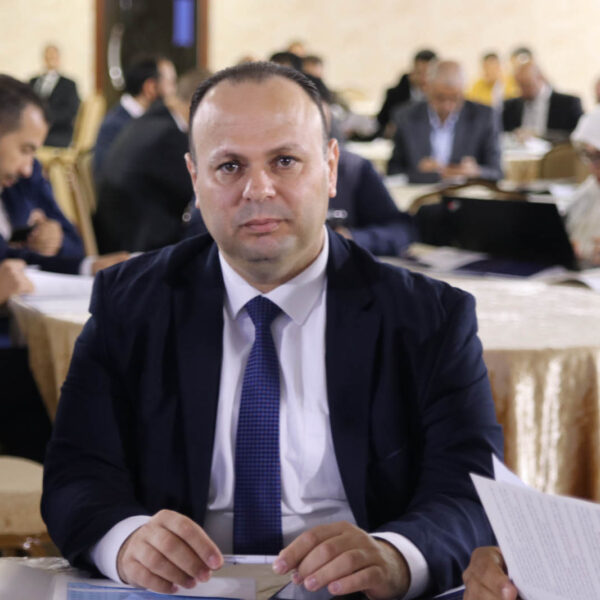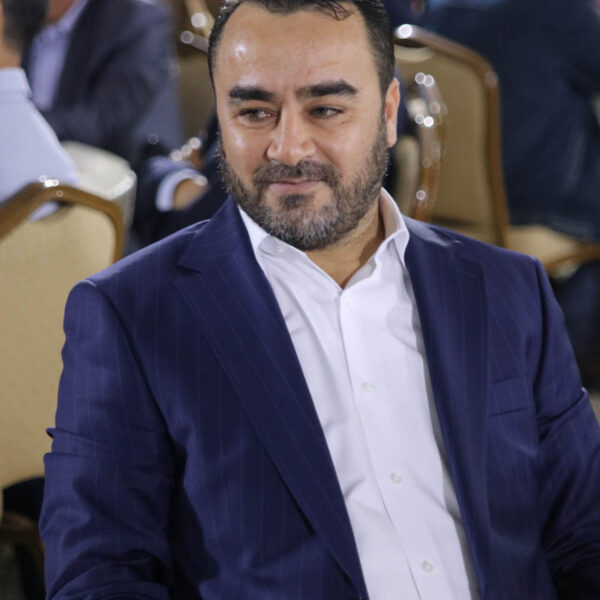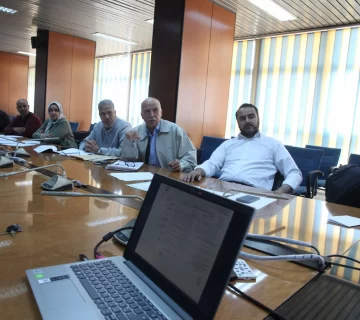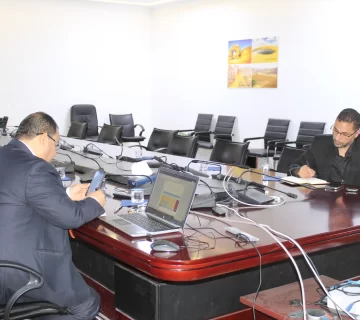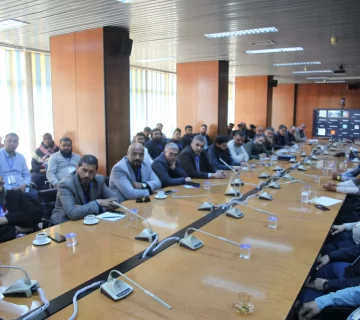Tripoli – Monday, November 21, 2022
The General Information Authority organized, on Monday, at Bab Al Bahr hotel, Tripoli, a workshop focused on discussing the National Information System draft law. The workshop’s activities were attended by the head of the authority Abdulbaset Al Baour; General Manager of the National Information Security and Safety Authority, Mr. Salah Addin Abuzaid Atabini, head of the Libyan Organization for Information and Communication Technology, Eng. Amin Saleh, and a number of directors from the sectorial documentation and information centers. Through Zoom, Dr. Haider Freihat, Director of the Information and Communications Technology Department at the Economic and Social Commission for Western Asia (ESCWA), as well as Dr. Mohammed Nawar Al Awa, Regional Advisor to ESCWA.
The workshop was also attended by head and members of the committee preparing the National Information System draft law; and representatives of a number of governmental and private institutions, and a group of professors, specialists, and those interested in law and informatics, and a number of directors of departments and offices in the authority.
The activities of the workshop were opened with a speech by the head of the GIA, Eng. Abdulbaset Salem Al Baour, in which he welcomed the attendants and thanked them for participating, implicating the positive effect of communication between the specialists in discussing the draft law, which was prepared by the authority in the framework of its missions and national responsibilities, saying that this occasion is to present the draft law, and then gave an opening for all the specialists, and those interested in stating their opinions, observations, and suggestions, in support of this draft.
Eng. Abdulbaset Albaour added that the GIA put down a work plan to improve a number of policies and laws to be developed in the State of Libya, among which Law No. 4, of year 1990, about the National Information and Documentation System, indicating that this law is no longer capable of catching up with the changes of the age of information, confirming that the aim of the proposed project is the inclusion of provisions related to data and information that did not exist at the time of the issuance of Law No. 4; and adding new provisions with regard to the National Information System, to fill the space caused by the comprehensive positive effects of the information technology revolution in various aspects of administrative, economic, political; social, cultural and legal life.
The workshop included several speeches, including a speech by Dr. Abdulroaf Ali Al Bibas, Chairman of the Committee for preparing the draft law of the National Information System, and a speech by Dr. Haider Freihat, and another by Dr. Mohammed Al Awa.
The workshop also included two visual presentations; foremost among them is a presentation of the methodology for preparing the draft law on the National Information System, presented by Eng. Fayez Al Ameen Al Ghudamsy, a member of the committee of preparing the draft law, and another presentation about the National Information System, presented by Eng. Adel Jumaa Toumi, Director of National Information System Management at the GIA.
The workshop witnessed meaningful inputs and discussions about the draft law, which was characterized by an abundance of interaction with the content of the draft.
The head of the authority assigned a work team from the best national experts, which included: Dr. Abdulroaf Al Bibas, Dr. Uthman Al Ghajiji; Eng. Fayez Al Ghudamsy, Advisor Kamal Salamal; Ms. Najlah Abu Bakr; to prepare a new national information system draft law, to replace Law No. 4 of year 1990, and that is in the framework of the GIA’s keenness to organize and develop the legislative and legal system, and to employ all its capabilities to advance the national information sector; so that it may occupy its primary and pioneering role in the national development process in its comprehensive sense. During the period of its work, the team prepared an initial draft of the law; and relevant national laws and initiatives were drafted with help, alongside a number of Arabic and foreign laws, in addition to have studied the various standards and principles approved by some international organizations in this regard.

